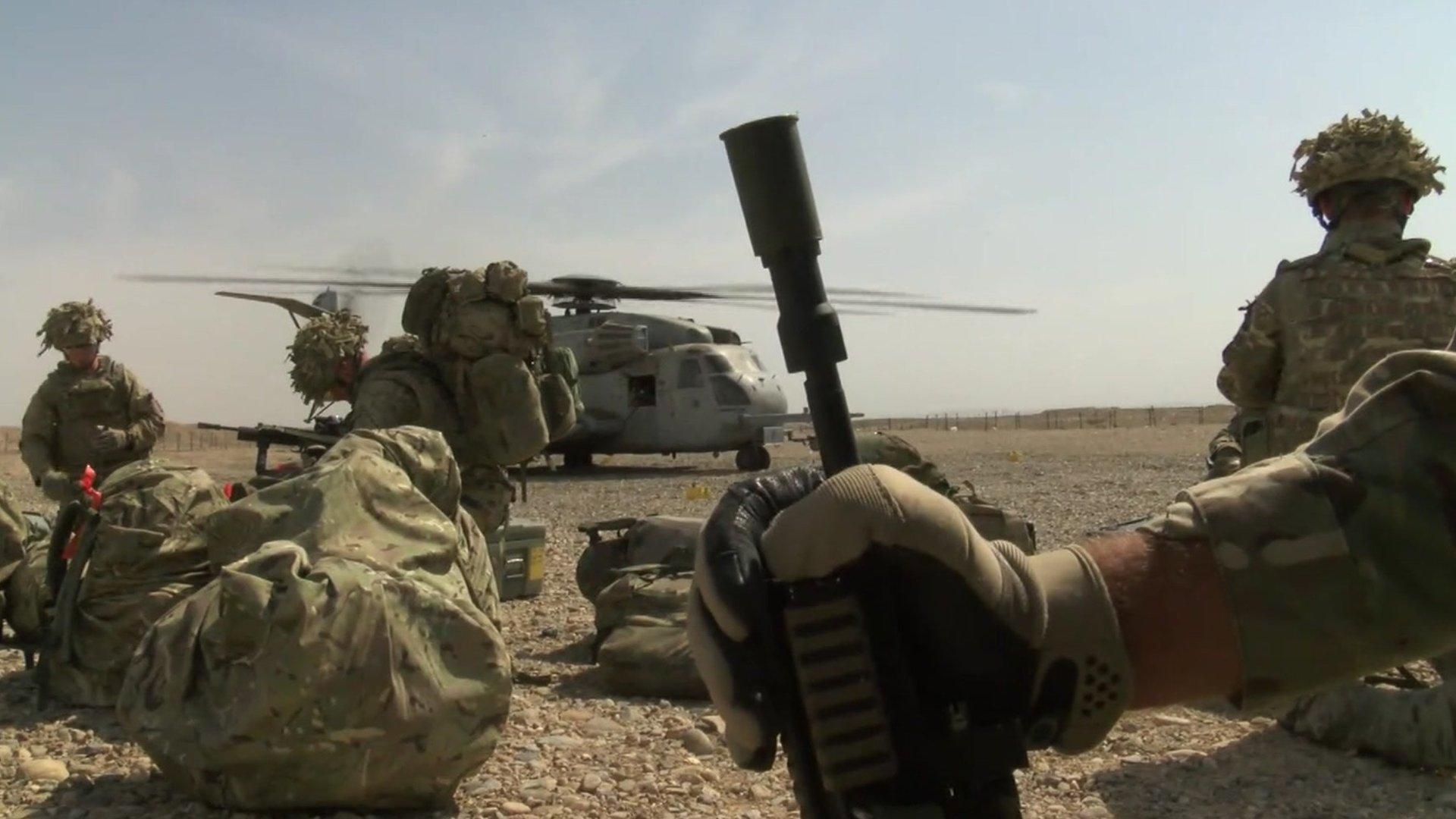Iraq and Afghanistan: Human cost of war for British servicemen and women
- Published
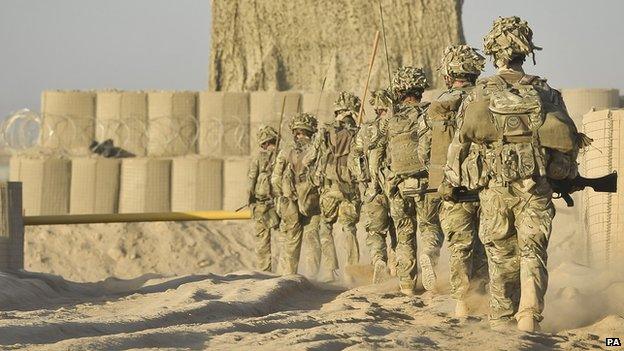
From January 2001 to March 2014, 220,560 individuals were deployed to either Iraq or Afghanistan, the MoD says
For Britain's armed forces the war in Afghanistan is fast drawing to a close.
To date, 453 UK servicemen and woman have lost their lives there.
But the human cost goes much further.
Many soldiers are still recovering from severe physical injuries.
Others are counting the cost with unseen mental scars.
For the first time we now have a sense of the scale of the potential problem.
Figures released by the Ministry of Defence (MoD) show that nearly a quarter of a million men and women have served on the front line.
Between January 2001 and March 2014, 220,560 individuals have been deployed to either Iraq or Afghanistan. Many in that number would have had multiple tours.
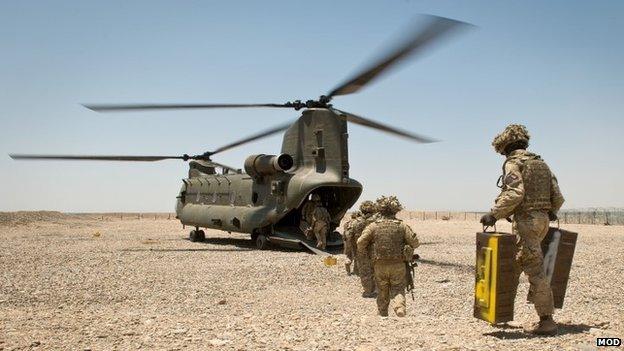
British troops are preparing to leave Afghanistan by the end of 2014
The harder task is working out how many have suffered as a result - either physically or mentally.
The charity Help for Heroes has made the first significant attempt to pin down the human cost of the wars.
Using official statistics provided by the MoD and academic research, the charity puts the total number of people who might suffer as a result of the wars, either physically or mentally, at 74,991.
That figure is what you might call an educated guess.
So how did they do it?
Medically discharged
A study carried out by King's College London in 2012 found that 27.2% of those deployed to the front line had symptoms of common mental disorders.
Therefore, of the 220,560 who've served in either Iraq and Afghanistan, it's been assumed that 59,992 have or could have mental health issues.
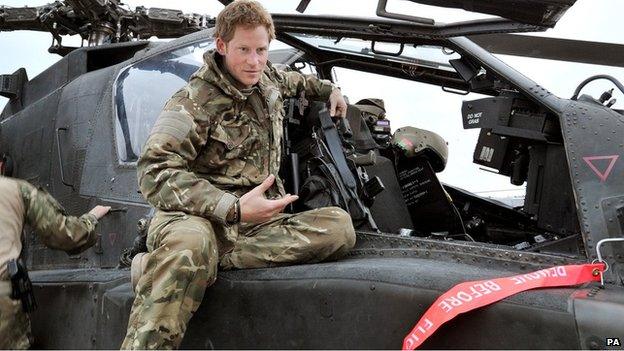
Prince Harry is among those who have served in Afghanistan
As for the physical effects of the war, Help for Heroes has based its findings on the number of soldiers who've left the UK armed forces for medical reasons.
Between 2001 and March 2014, 20,603 personnel were medically discharged. To avoid double counting, Help for Heroes concludes that 14,999 may have left as a result of physical injuries.
Add those who may suffer mental health issues and you get to that total of 74,991.
'Personal battles'
There are flaws in the way Help for Heroes has come to that number.
For example, the academic research does not show that all soldiers who are likely to suffer mental health problems will do so directly as a result of their exposure to conflict.
Some may have been predisposed to an illness before they signed up.
And not all of the 20,603 military personnel medically discharged would have left because of the fighting. Some would have been dismissed long before they reached the front line.
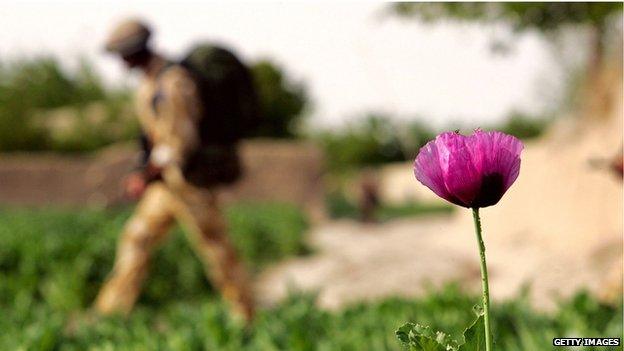
The UK, winding down its military presence in Afghanistan, says the drugs business remains too prominent
Neil Greenberg, professor of mental health at King's College London, says these figures "provide a good starting point for more detailed academic work".
He, like many others, believes the human cost of British military involvement in Afghanistan and Iraq has not yet been fully realised.
He says most individuals who suffer from mental health problems are unlikely to seek care, in part because they may not recognise symptoms or because of the stigma attached.
Perhaps the greatest fear among military charities, though, is that when the last British combat troops return from Afghanistan by the end of the year, it will all have been forgotten.
Help For Heroes, which gets more than 90% of its funding from the public, wants to use the final few months of Britain's military campaign involvement to remind people that its work will continue.
Help for Heroes founder Bryn Parry says it is "only right that we recognise their personal battles will continue long after the guns fall silent".
- Published2 September 2014
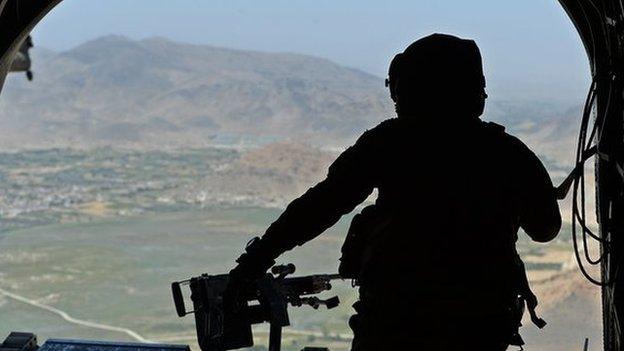
- Published30 July 2014
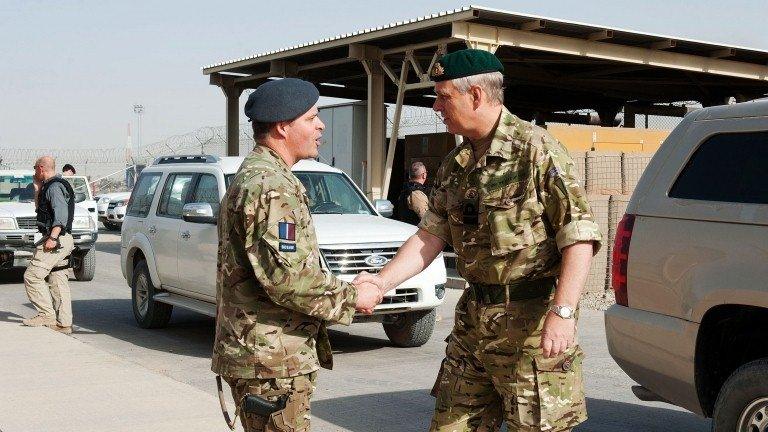
- Published9 September 2019
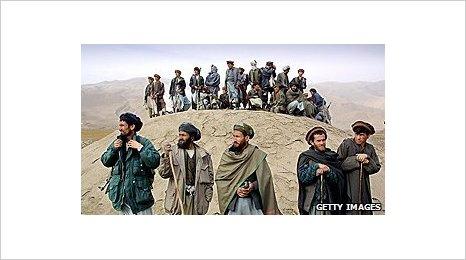
- Published10 May 2014
